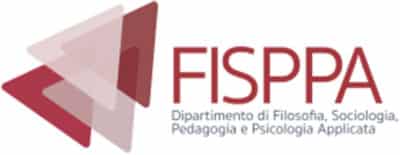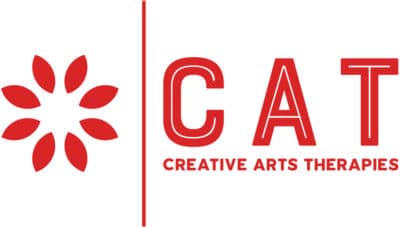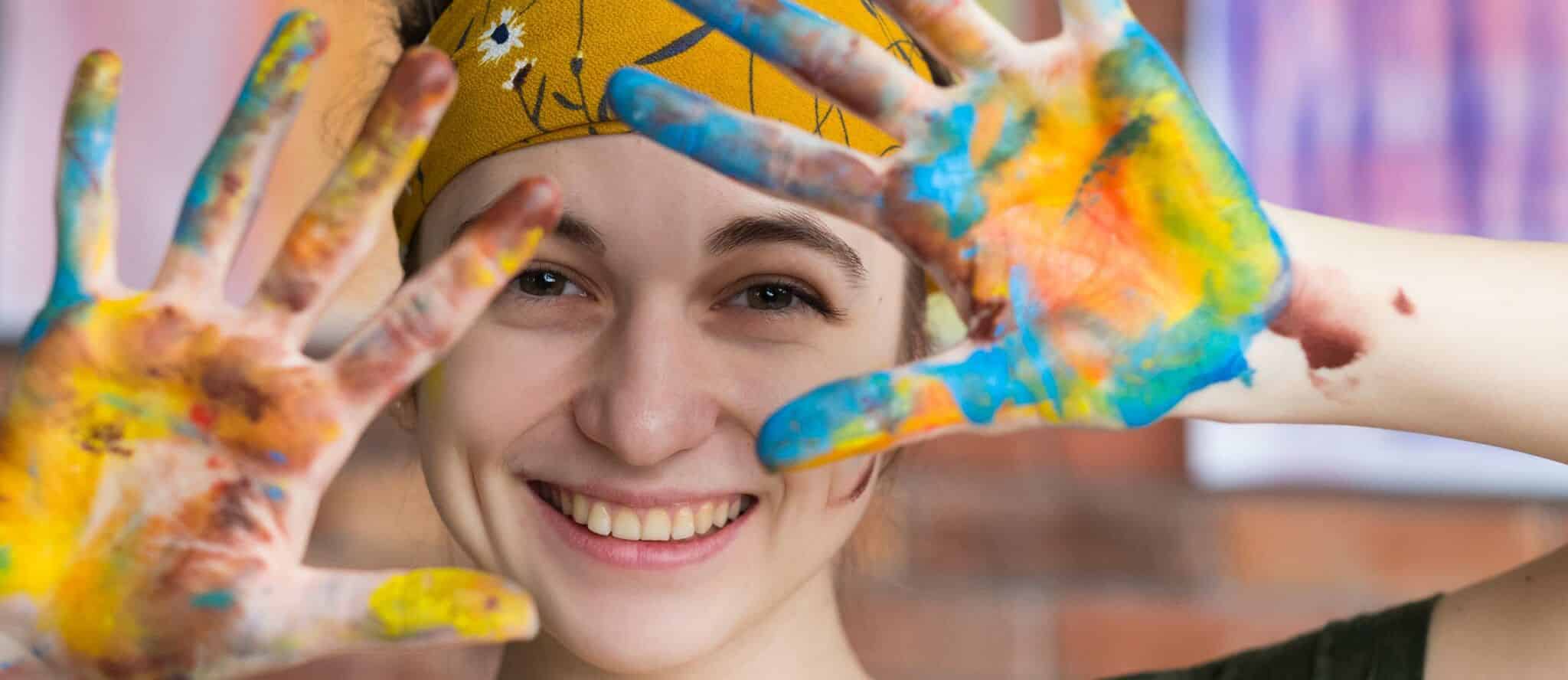

The Master in Creative Art Therapies to Strengthen Resilience helps students acquire cross-cutting skills that can be applied to different professional contexts where Art Therapies are used to strengthen resilience.
By focusing on the creative process to care for oneself and other people, the course explores different expression methods, such as: dramatic action, photography, music and writing. The modules follow the standards of excellence from Italian and international associations, with the aim of being included in the current European Art Therapies R&D network. The methods used in palliative care, mental health departments, schools, senior care, and abused women centres are presented through the experience of internationally-renowned specialists. The Master is based on an integrated, innovative and multidisciplinary approach, through a dialogue between philosophy, psychology and pedagogy. It also explores the basics of research methodology.
The Master in Creative Art Therapies to Strengthen Resilience is developed through seven modules:
- Introduction to Art Therapies
- Treatment through dramatic action
- Treatment through photography
- Treatment through writing and storytelling
- Treatment through music
- Art Therapies in the developmental age
- Research methodology
The Master in Creative Art Therapies to Strengthen Resilience considers the creative art therapy as an integration for professionals working in the mental health sector, who have already acquired a specific education in this sense (e.g., psychiatrists, psychologists, psychotherapists).
It also supports the social-educational competence of professionals working to promote resilience, such as: educators, teachers (of any level), pedagogues, healthcare professionals and social workers.
Through a multidisciplinary perspective, students help to use creative techniques and strategies to meet the needs of different user groups, within contexts such as: hospital wards, hospices, schools, local structures, private institutions, and private social institutions.
The Master in Creative Art Therapies to Strengthen Resilience is structured around the following core subjects:
• the HICAT (Holistic Integrated Creative Arts Therapies) approach: theoretical foundations and evolution of studies;
• the importance of dramatic action: drama therapy, psychodrama, playback theatre, theatre of the oppressed, specific performance strategies for adults and the elderly;
• assistance with images: graphic arts, photography, video and cinema developed with creative phototherapy, photolanguage, photovoice, cinema and video for training and therapy;
• processes of meaning through writing and storytelling: subjectivity and intersubjectivity discovered through the evocation of myths and fairy tales for every season of life and in every state of health: storytelling, poetry therapy, biographical methods, narrative medicine;
• the use of music for resilience, well-being, listening and care through psychology, music therapy and musical anthropology.
• In-depth analysis of the use of HICAT in childhood: individual, group and parent-child interventions in school, social and clinical settings;
• Japanese self-care: the magic of butoh dance, kintsugi and haiku;
• The integration of HICAT and meditation;
• Elements of qualitative analysis of reports.
Classes will be held from 9:00 a.m. to 1:00 p.m. and from 2:00 p.m. to 6:00 p.m.
Interdisciplinarity and transdisciplinarity characterize the entire curriculum, while maintaining a cogent unity of knowledge, focusing on the individual. Contents are dealt with by keeping the essential role of art therapy in well-being and resilience central, to meet individual and collective needs. For this reason, the course includes meetings, comparison and discussion with specialists presenting their research and studies, and also experiential workshops.
The Course focuses on the different disciplines of three fundamental fields of knowledge: philosophy and anthropology, psycho-pedagogy, and medicine-nursing.
The contents considered concern:
- Theoretical fundamentals, contemporary models, applicative art therapy contexts (art therapy, music therapy, drama therapy, dance-movement therapy);
- Dramatic action as therapy;
- Use of photography as resilience support strategy;
- Storytelling strategies: poetry therapy, use of myths and fairy tales and narrative medicine.
- Care through therapy: musical anthropology and music therapy;
- Art therapy to support children, adolescents and parents;
- Elements of quantitative and qualitative analysis in creative art therapies.
The entire curriculum is characterized by interdisciplinarity and transdisciplinarity, while maintaining a compelling block of knowledge, focused on people. The contents are conveyed while keeping the essential role of Art Therapies for well-being and resilience in mind, to me personal and community needs. For this reason, it includes meeting, comparison and debate occasions, with specialists presenting their researches and studies, and also hands-on workshops.
The Master encompasses several specialist disciplines in three fundamental fields of knowledge: philosophical and anthropological, psycho-educational, and medical-nursing.
The contents considered include:
- Art therapies theoretical fundamentals, contemporary mo0dels, and application contexts (art therapy, music therapy, drama therapy, dance-movement therapy);
- Dramatic action as treatment;
- Photography as strategy to support resilience;
- Narrative strategies: poetry therapy, the use of myths and fairy tales, and narrative medicine;
- Treatment through music: musical anthropology and music therapy;
- Art therapies to support children, adolescents and parents;
- Quantitative and qualitative analysis elements in creative art therapies.
The course professors include internationally-renowned experts and specialists, such as:
- • Prof. Ines Testoni
• Prof. Massimo Grassi
• Prof. Umberto Curi
• Prof. Michela Gatta
• Prof. Michele Biasutti
• Prof. Cristina Marogna
• Prof. Amedeo Boros
• PhD Laura Liberale
• PhD Silvia Piol
• Dott. Gianmarco Biancalani
• Dott. Maria Letizia Cipriani
• Dott. Gloria Garbujo
• Dott. Lucia Moretto
• Dott. Francesca Belgiojoso
• Dott. Riccardo Bononi
• PhD Shoshi Keisari
• Dott. Chiara Acler
• PhD Livia Sani
• Dott. Nina Ferrari
• Prof. Salvatore Pitruzzella
• Dott. Raffaele Schiavo
• Dott. Erika Iacona
• PhD Camilla Mele.
The general ranking of merit for the academic year 2025/26 will be published on the Italian page of this Master according to the timing provided in the Call.
Information
FAQ
The Course is divided into thematic modules, usually held on the weekend. Mandatory attendance of in-person lessons is 70%, and it is supported by distance learning on Moodle platform. The course includes:
- in-class lessons
- experiential workshops and project work
- field trips
- distance learning
- Moodle platform for materials and lesson recordings
- Forum for communications with Tutors, Professors and students
- optional possibility of participating to all seminars, conferences, educational meetings and congresses held by FISPPA and by the Course free of charge.
Art therapy workshops focused on the personal processing of the training path. Mandatory project work.
The “standard” path is addressed to those who meet the access requirements to the Post-Graduate Course, and consists of the acquisition of a course certificate, based on all attendance and mandatory project work completion requirements.
Those who do not meet the access requirements, can take part in the Course as listeners; there are 3 spots available. Listeners are exempt from traineeship and project work completion requirements.

